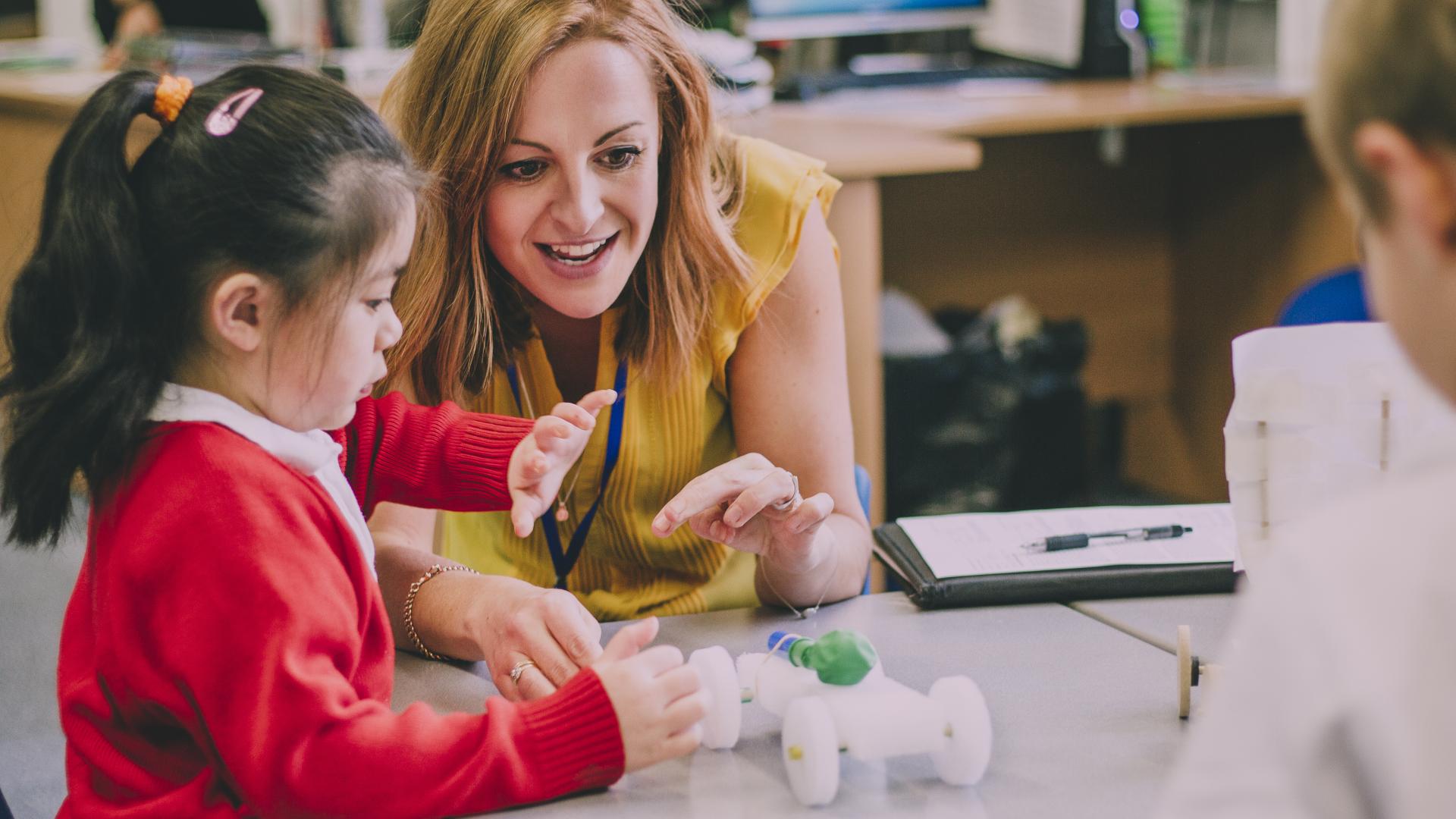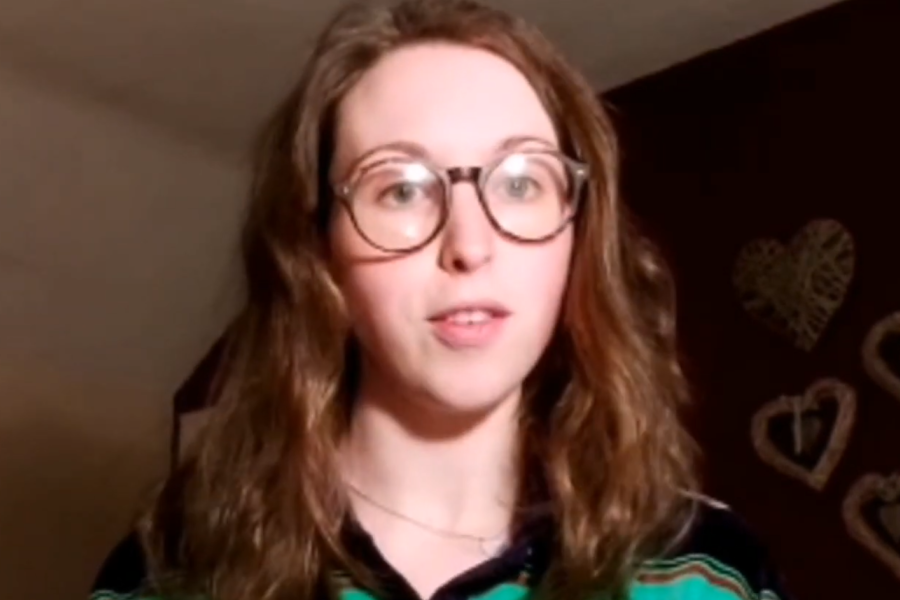About This Course
You’ll develop a thorough understanding of how children learn and the skills needed to develop as a creative and innovative teacher who can make a make a real difference to the lives of young people. School placements are in a wide range of settings including urban and rural, mainstream and special schools where you’ll be supported by experienced staff to learn how to plan appropriate schemes of work and consider assessment and reporting strategies.
This exciting degree with Qualified Teacher Status (QTS) trains you as a primary teacher especially equipped to teach in Wales and is equally valid for those wanting to teach in the rest of the UK and beyond. It is a great time to come and study to be a teacher in Wales. Education in Wales is entering an exhilarating new era developing a world class curriculum for schools. Bangor University, with its longstanding and excellent reputation for teacher training and education, is partnered with quality schools in north Wales who have had an active role in designing the course you’ll study. This course is delivered as part of the CaBan partnership between schools, Bangor University, the Regional Consortium GwE and the research institute CIEREI. Together we share the common goal of educating the next generation of world-class educators, from initial teacher education, through continuous career long professional learning.
Our partner schools have well-trained mentors who will support your progress towards becoming an excellent and innovative teacher. Experienced tutors and researchers in university and school based staff will provide excellent support and stimulating learning sessions both in the university and in your placement schools. Students on this Welsh medium course will be placed in Welsh medium schools and throughout the course we will support and encourage you to further develop your Welsh language skills in an educational setting.
This is the Welsh-medium course. The English-medium course has a different UCAS code.
Why choose Bangor for this course?
- English, Welsh and bilingual programmes and school placements.
- Varied and supportive placements across more than one age range widen your career options.
- Cultural appreciation and experience of multi-lingual environments is highly valued by employers in Wales, across the rest of the UK and beyond.
Additional Course Options
This course is available with a Placement Year option where you will study for 1 additional year. The Placement Year is undertaken at the end of the second year and students are away for the whole of the academic year.
The Placement Year provides you with a fantastic opportunity to broaden your horizons and develop valuable skills and contacts through working with a self-sourced organisation relevant to your degree subject. The minimum period in placement (at one or more locations) is seven calendar months; more usually you would spend 10-12 months with a placement provider. You would normally start sometime in the period June to September of your second year and finish between June and September the following year. Placements can be UK-based or overseas and you will work with staff to plan and finalise the placement arrangements.
You will be expected to find and arrange a suitable placement to complement your degree and will be fully supported throughout by a dedicated member of staff at your academic School and the University’s Careers and Employability Services.
You will have the opportunity to fully consider this option when you have started your course at Bangor and can make an application for a transfer onto this pathway at the appropriate time. Read more about the work experience opportunities that may be available to you or, if you have any questions, please get in touch.
This course is available with an International Experience Year option where you will study or work abroad for 1 additional year. You will have ‘with International Experience’ added to your degree title on graduating.
Studying abroad is a great opportunity to see a different way of life, learn about new cultures and broaden your horizons. With international experience of this kind, you’ll really improve your career prospects. There are a wide variety of destinations and partner universities to choose from. If you plan to study in a country where English is not spoken natively, there may be language courses available for you at Bangor and in your host university to improve your language skills.
You will have the opportunity to fully consider this option at any time during your degree at Bangor and make your application. If you have any questions in the meantime, please get in touch.
Read more about the International Experience Year programme and see the studying or working abroad options on the Student Exchanges section of our website.
Course Content
You’ll spend an average of 20 hours per week in lectures/seminars. You’ll also need to read, prepare for seminars, complete coursework and prepare teaching resources. The University-based elements are assessed through a wide range of coursework. Your school practice will be monitored by school mentors and link tutors.
What will you study on this course?
You’ll learn about how young children develop and the key learning theories. You’ll also gain knowledge on how to teach a wide range of learners, including those with Additional Learning Needs and bilingual learners. You’ll learn key professional skills, such as behaviour management. Learning about the school curriculum will increase your own subject knowledges in areas such as Mathematics, Literacy, Science, Technology, the Humanities and the Arts. You’ll explore the importance of health and well-being for all pupils and will gain the skills you’ll need to plan, create resources, teach and assess effectively across the whole range of subjects.
School Experience
You’ll work alongside, and with support from, experienced teachers to develop as a class teacher. This will help you to become familiar with the foundation phase framework and national curriculum and the new developing curriculum for Wales. You’ll learn how to plan appropriate schemes of work and consider assessment and reporting strategies. There are at least eight weeks of school placement each year in a wide variety of settings.
Modules for the current academic year
Module listings are for guide purposes only and are subject to change. Find out what our students are currently studying on the Primary Education with Qualified Teacher Status (Welsh-medium course) BA (Hons) Modules page.
Course content is for guidance purposes only and may be subject to change.
Facilities
General University Facilities
Library and Archive Services
Our four libraries provide a range of attractive study environments including collaborative work areas, meeting rooms and silent study spaces.
We have an extensive collection of books and journals and many of the journals are available online in full-text format.
We house one of the largest university-based archives not only in Wales, but also the UK. Allied to the Archives is the Special Collections of rare printed books.
Learning Resources
There is a range of learning resources available, supported by experienced staff, to help you in your studies.
The University’s IT Services provides computing, media and reprographics facilities and services including:
- Over 1,150 computers for students, with some PC rooms open 24 hours a day
- Blackboard, a commercial Virtual Learning Environment, that makes learning materials available on-line.
Course Costs
General University Costs
Home (UK) students
- The cost of a full-time undergraduate course is £9,250 per year (2025/26).
- The fee for all integrated study abroad years is £1,385 (2025/26).
- The fee for an integrated year in industry as part of a sandwich programme is £1,850 (2025/26).
More information on fees and finance for Home (UK) students.
International (including EU) students
Additional Costs
There are also some common additional costs that are likely to arise for students on all courses, for example:
- If you choose to study abroad or take the International Experience Year as part of your course.
- If you attend your Graduation Ceremony, there will be a cost for gown hire (£25-£75) and cost for additional guest tickets (c.£12 each).
Course-specific additional costs
Depending on the course you are studying, there may be additional course-specific costs that you will be required to meet. These fall into three categories:
- Mandatory Costs: these are related to a particular core or compulsory module that you’ll be required to complete to achieve your qualification e.g. compulsory field trips, uniforms for students on placement, DBS Check.
- Necessarily Incurred Costs: these may not be experienced by all students, and will vary depending on the course e.g. professional body membership, travel to placements, specialist software, personal safety equipment.
- Optional Costs: these depend on your choice of modules or activity and they are shown to give you an indication of the optional costs that may arise to make sure your choice is as informed as possible. These can include graduation events for your course, optional field trips, Welcome Week trips.
Entry Requirements
GCSEs:
- Grade C/Grade 4 in the GCSE examination in any of the following: English Language, English Literature, Welsh First Language, Welsh Literature;
- Grade C/Grade 4 in the GCSE Examination in Mathematics or Mathematics-Numeracy must also be achieved;
- GCSE Grade C/Grade 4 in Science.
Offers are tariff based, 96- 128 tariff points from a Level 3 qualification* e.g.:
- A Levels: General Studies and Key Skills not normally accepted
- BTEC National Extended Diploma: MMM - DDM
- T-levels: considered on a case-by-case basis
- International Baccalaureate is accepted
- Welsh Baccalaureate is accepted
- Access is accepted
- A willingness and positive attitude towards seeking to improve personal use of the Welsh language.
We also welcome applications from mature learners.
International Candidates: International Candidates: school leaving qualifications that are equivalent to A levels/Level 3 and/or college diplomas are accepted from countries worldwide (subject to minimum English Language requirements). More information can be found on our International pages.
*For a full list of accepted Level 3 qualifications, go to www.ucas.com.
Additional information
Applicants are required to undergo an enhanced DBS check for the child workforce including a check of the children’s barred list. Applicants who have lived or worked outside the UK are also required to undertake a criminal records check in their countries of residence.
Applicants should reflect carefully on their ability to meet the rigours and demands of the profession. Refer to the considerations for applicants to Initial Teacher Education Programmes.
GCSEs:
- Grade C/Grade 4 in the GCSE examination in any of the following: English Language, English Literature, Welsh First Language, Welsh Literature;
- Grade C/Grade 4 in the GCSE Examination in Mathematics or Mathematics-Numeracy must also be achieved;
- GCSE Grade C/Grade 4 in Science.
Offers are tariff based, 104 - 128 tariff points from a Level 3 qualification* e.g.:
- A Levels: General Studies and Key Skills not normally accepted
- BTEC National Extended Diploma: DMM- DDM
- T-levels: considered on a case-by-case basis
- International Baccalaureate is accepted
- Welsh Baccalaureate is accepted
- Access is accepted
- A willingness and positive attitude towards seeking to improve personal use of the Welsh language.
We also welcome applications from mature learners.
International Candidates: International Candidates: school leaving qualifications that are equivalent to A levels/Level 3 and/or college diplomas are accepted from countries worldwide (subject to minimum English Language requirements). More information can be found on our International pages.
*For a full list of accepted Level 3 qualifications, go to www.ucas.com.
Additional information
Applicants are required to undergo an enhanced DBS check for the child workforce including a check of the children’s barred list. Applicants who have lived or worked outside the UK are also required to undertake a criminal records check in their countries of residence.
Applicants should reflect carefully on their ability to meet the rigours and demands of the profession. Refer to the considerations for applicants to Initial Teacher Education Programmes.
General University Requirements
To study for a degree, you’ll be asked for a minimum of UCAS Tariff points. For a fuller explanation of the UCAS Tariff Points, please see www.ucas.com.
We accept students with a wide range of qualifications and backgrounds and consider each application individually.
All students need to have good basic skills and the University also values IT and communication skills.
As part of the University’s policy, we consider applications from prospective disabled students on the same grounds as all other students.
We also consider applications from mature students who can demonstrate the motivation and commitment to study a university programme. Each year we enrol a significant number of mature students. For more information about studying as a mature student, see our Studying at Bangor section of the website.
EU and International Students' Entry Requirements
For detailed guidance on the entry requirements for EU and International Students, including the minimum English Language entry requirement, please visit the Entry Requirements by Country pages. International applicants can also visit the International Education Centre section of our website for further details.
Bangor University offers International Incorporated Bachelor Degrees for International students whose High School qualification is not equivalent to the UK school leaving qualification. The first year (or Year 0) is studied at Bangor University International College, an embedded College on our University campus and delivered by Oxford International Education Group.
Careers
BA (Hons) Primary Education with QTS (3-11) is recognised across Wales and England and is often transferable* further afield for entry into the teaching profession. It fully prepares you for the demands of teaching in Wales and beyond.
This programme prepares you for a wide range of roles within education and develops leadership skills which will be essential for you as your career develops. There is a growing body of evidence that school leadership has an impact on student outcomes second only to the influence of teachers in the classroom. Within the CaBan partnership we have international expertise and experience of the latest leadership theory and research. This expertise impacts on both the content of this programme and the significant developments across the region and national level with respect to developing strong and effective leadership teams in our schools.
The programme offers short/full placements in Primary and Special Schools, Outdoor Centres and other education related settings to ensure you have enhanced experience specific to your individual interests. The programme is co-constructed, delivered and assessed with a network of excellent partnership schools across the region giving you a fantastic set of up-to-date skills that will be invaluable as you move into your primary teaching career.
*Those seeking to teach outside Wales and England should check recognition and transferability of Qualified Teacher Status with the respective country’s Teachers’ Professional Body.
Opportunities at Bangor
The University’s Careers and Employability Service provides a wide range of resources to help you achieve your graduate ambitions.
Internships
Bangor University runs a paid internship scheme within the university’s academic and service departments.
Student Volunteering
Volunteering widens your experience and improves your employability. Find out more about volunteering on the Students’ Union’s website.





